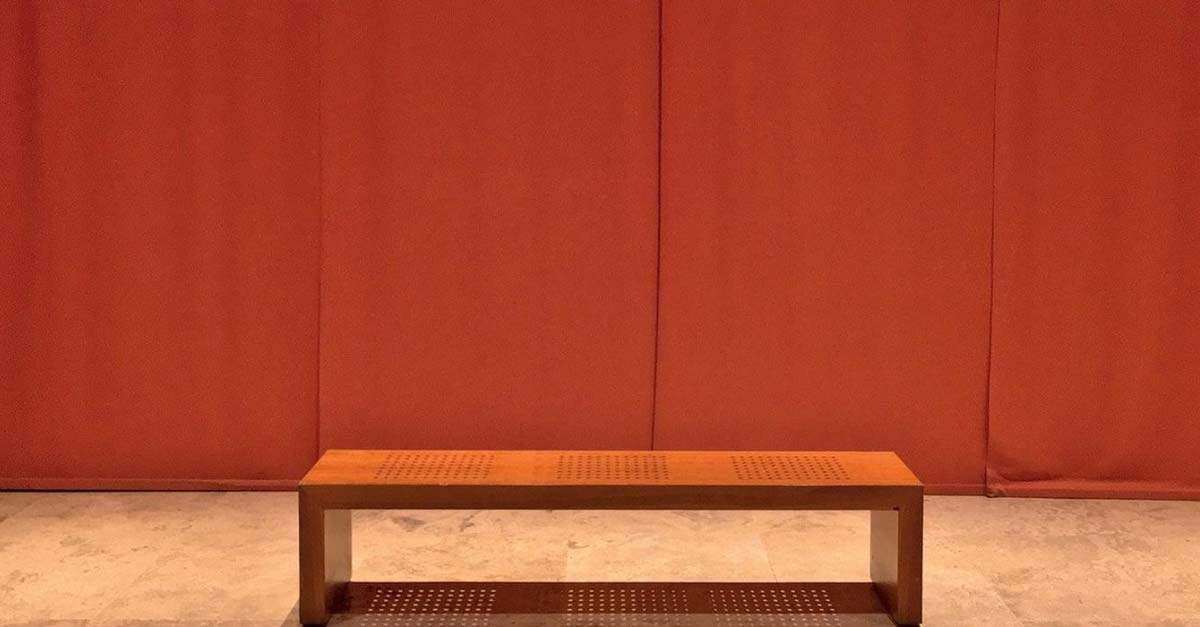Rome, for Sound Corner's 10th anniversary a project by Massimo Bartolini on unheard music
In Rome, the Sound Corner at theAuditorium Parco della Musica “Ennio Morricone,” the permanent sound installation located in the transition space between the foyer of Sala Petrassi and Teatro Studio Borgna, turns ten. For the occasion, Ondine is presented, a sound work by Massimo Bartolini (Cecina, 1962) that inaugurated the project in December 2012, initiating the exchange of invitations and collaborations that has characterized the initiative from the beginning, in the desire to create a network of relationships and partnerships among artists, curators and institutions that have been interested in and working in the varied and multifaceted field of sound research for years. The project is curated by Anna Cestelli Guidi, art historian and curator, Visual Arts referent at Fondazione Musica per Roma, Auditorium - Parco della Musica.
Fascination with noise, murmur, silence, the off-programs of musical performance, is what interests Massimo Bartolini in this work as in the exhibition project HUM also realized in December 2012 in AuditoriumArte, in homage to the visionary and anti-conformist artist Glenn Gould. Within the space, the Canadian musician’s presence came to life precisely through the sound of his famous humming, that background hum that Bartolini decided to extrapolate from the last recording of the Goldberg Variations in 1981. Ondine , too, was born out of a fascination with unplanned moments in musical performance: on October 17, 1988, during a concert in Bordeaux, Arturo Benedetti Michelangeli fell ill at the 24th bar of C. Debussy’s eighth prelude, Ondine.
Massimo Bartolini focuses his attention here on the end of the prelude, of which he isolates the echo of the last note, very low, which is a prelude to the background noises that follow. One cannot help but think of another piano concerto, that celebrated 4’33" by John Cage that forever changed the paradigm of traditional music and listening. Only here the silence is not intentional but is the consequence of an abrupt interruption, which hauntingly resonates in the artist’s mind as “unheard music.”
As the artist writes in the email to American enthusiast Helen Moritz who recorded the Oct. 17 concert then posted it on the Internet, “Many years ago I attended a Claudio Arrau concert in Florence. The pianist was already old and was being accompanied on the piano. In the middle of a piece by Listz he froze. The municipal theater engulfed in the silence of the music. It was an incredible experience. After a few minutes Arrau returned and started again from exactly the note after which he had stopped. I listened, on Radio 3, with deep emotion, to the excerpt from Benedetti Michelangeli’s concert in Bordeaux on October 17, the one where he had his illness. Since then I always think of the silence that followed that moment as music of incredible intensity. I then found on Youtube the audio of the concert she posted and the response she gives to user Peter Lemken: ’I regret not having left in this upload the silence followed by the bewilderment of the crowd, followed by its applause, of encouragement but still lost.’ It is since July 9, 2020 that I have been thinking of the silence of Bordeaux as unheard music.”
Ondine is this unheard music, fixed by the artist in the final minute of the Oct. 17 live recording: “I had to do something with it because I thought about it every day. So, I extrapolated from the whole recording of the concert only the final minute just after the last note before the silence, the music and the beginning of the buzzing, then the applause, more buzzing and the recording abruptly stopped. This minute of noise, a roar, a roll of applause, manifests itself every hour like the striking of the hours of a clock, always the same every hour, but we end up never hearing it because we are never there when it plays....”
Fascinated by the randomness that opens new imaginative horizons and emotional intensities, Massimo Bartolini chose to so magically recreate that unexpected and surprising experience that is produced when the unexpected of life bursts in and disrupts rules and expectations: that minute of “unheard music” that can be heard every hour and will thus continue to remain unheard by most, but will exist only for the lucky ones present at that moment by chance, as in life.
 |
| Rome, for Sound Corner's 10th anniversary a project by Massimo Bartolini on unheard music |
Warning: the translation into English of the original Italian article was created using automatic tools. We undertake to review all articles, but we do not guarantee the total absence of inaccuracies in the translation due to the program. You can find the original by clicking on the ITA button. If you find any mistake,please contact us.




























